Michael Brown. Tamir Rice. Trayvon Martin. These names — read aloud by members of the Black Student Union — are just a few of those young black men who were killed, while unarmed, by law enforcement officers.
In response to the recent grand jury decision to not indict Officer Darren Wilson, who fatally shot 18-year-old Michael Brown, the Black Student Union hosted a memorial service to honor Brown and raise awareness for other black youth “who unwillingly faced the same fate,” according to the event’s Facebook page.
The event, titled “Black Lives Matter,” drew more than 100 members of the Lehigh community to the University Center front lawn Wednesday evening, where executive board members of the Black Student Union shared stories, poems and testimonials related to issues of racial inequality in the United States.
“We realized something needed to be done and we decided a memorial, because we believe all people can honor the lives of those who died,” said Lyasha Bishop, ’16, president of the Black Student Union. “I feel like one thing is a unanimous thing, which is that people realize that it’s sad that somebody so young had to die.”
Bishop said the purpose of “Black Lives Matter” was not only to memorialize Michael Brown, but also to educate the community about other instances of unjust deaths and how they play into the statistics of racial prejudices in the nation.
“We wish to speak out on the many just unjust deaths of black youth at the hands of violence due to racial stereotypes,” said Sydney O’Tapi, ’18, the Global Union representative of the Black Student Union. “There have been so many Michael Brown’s before Aug. 9, 2014, and these cases unfortunately continue. The Black Student Union sees this as an opportunity to speak up and join the nation in a protest for equal justice for all.”
While the Black Student Union collaborated with other student organizations for the memorial, such as Student Senate, the Latino Student Alliance, the National Association for Black Accountants, the National Society of Black Engineers and members of Lehigh’s LGBTQIA community, the event did not involve a speak-out portion.
Bishop said the event did not include an open mic section to avoid conflict and preserve the intent of the service. Instead, after the memorial, those in attendance were invited back to the Multicultural Room in order to foster a positive dialogue in a more closed environment.
“It’s not a rally. It’s a memorial,” Bishop said. “It’s to honor the lives, and while everyone’s voice does matter, the negativity is not something we are looking for. We are looking to honor the lives and to educate our community.”
Maggie Norsworthy, ’17, said the conversation in the Multicultural Room following the memorial service focused heavily on the proper way to address an individual who voices an offensive comment. She said the discussion felt more tangible and applicable than others she has attended at Lehigh and made her feel hopeful for Lehigh’s progress related to social justice topics.
Representatives from other student organizations were invited to speak at the memorial as well. Kerry Mallett, ’15, president of Student Senate, commented on the importance of holding a public memorial on a campus that is often apathetic.
“The larger lesson we need to take from the killing of these innocent people is that there is systemic, blatant racism in this country and it is causing innocent lives to be taken,” Mallett said. “We need to start recognizing the privilege that some of us have. Many people do not have to fear that they will be seen as dangerous individuals, and will be arrested or shot and killed without cause, but many people do because of their race and it is the responsibility of all to fight for equity for everyone.”
Elizabeth Pines, ’16, a member of Lehigh’s LGBT community, read to the audience a poem she wrote entitled “All Oppression is Connected.” *
“Since the founding of our country being black has been a crime. ‘Hands up, don’t shoot,’ too late, there’s not enough time,” Pines read. “The murder of black men, young and old, is nothing new, so what in the world could we possibly do?”
At the end of the memorial, candles were distributed throughout the audience, and the Black Student Union asked that everyone participate in four and a half minutes of silence to signify the four and a half hours that Michael Brown’s body lay in the street before it was taken away.
*Editor’s note: Pines’ poem is featured on page 9 of this issue of The Brown and White.


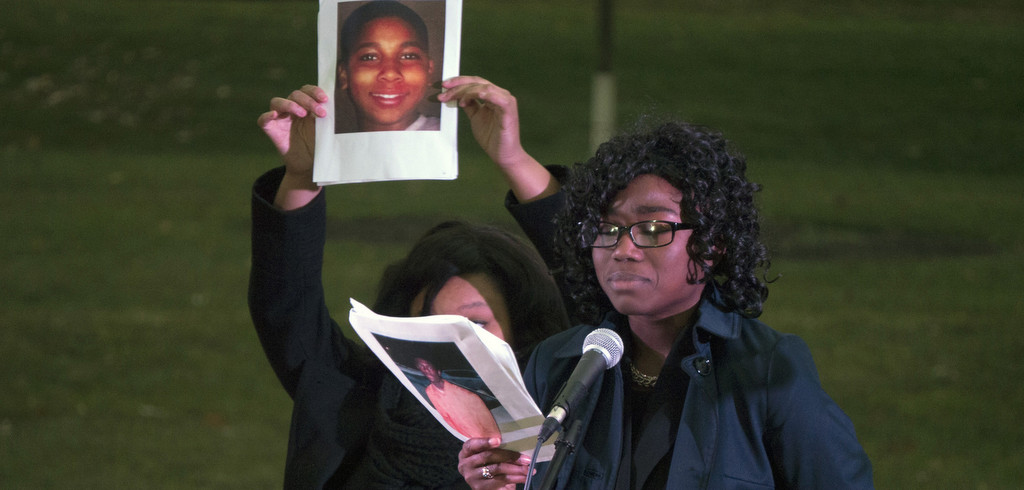
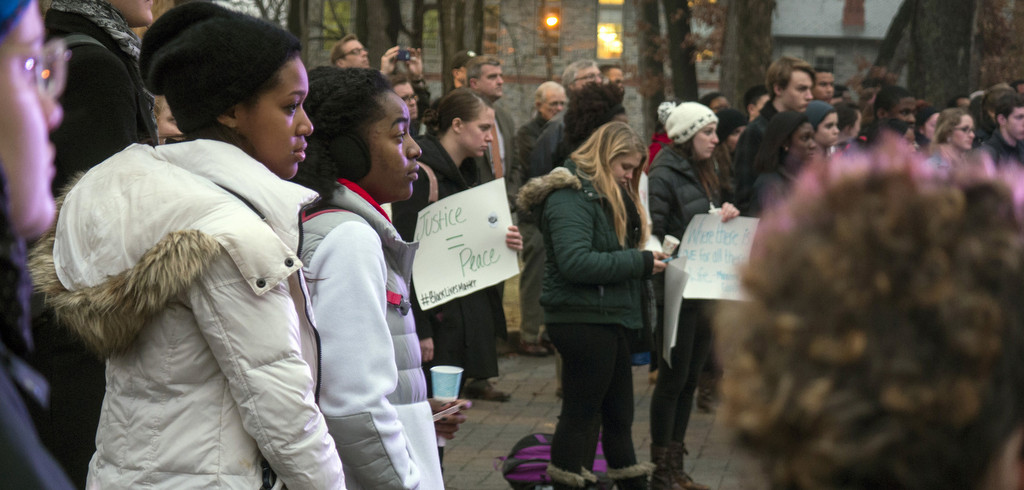
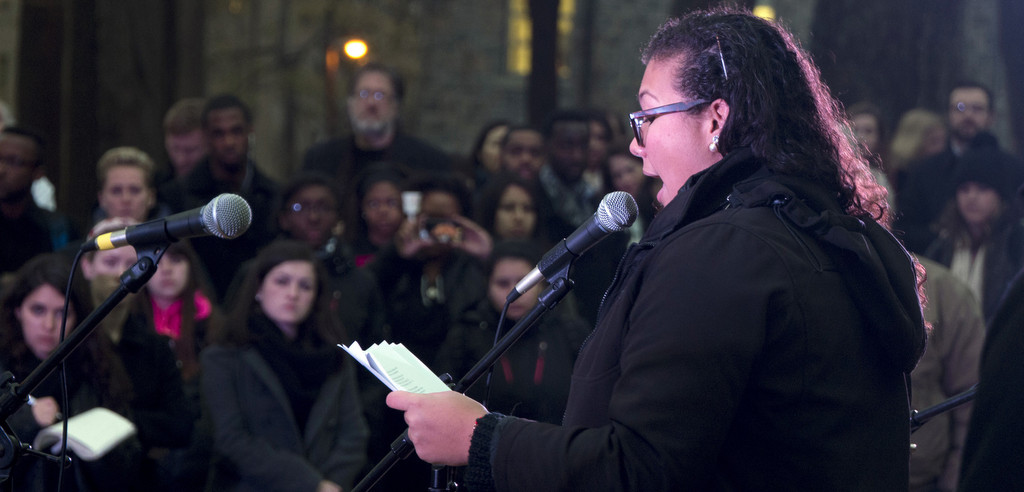
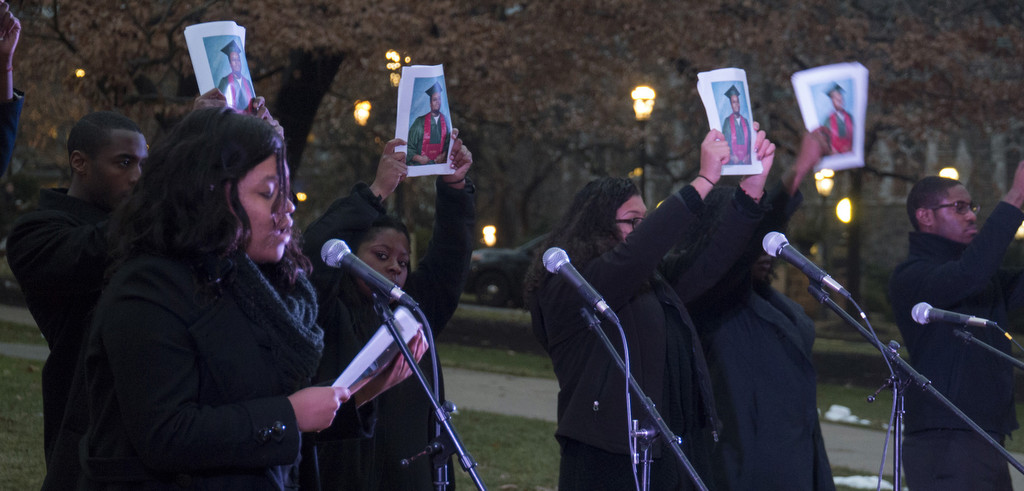
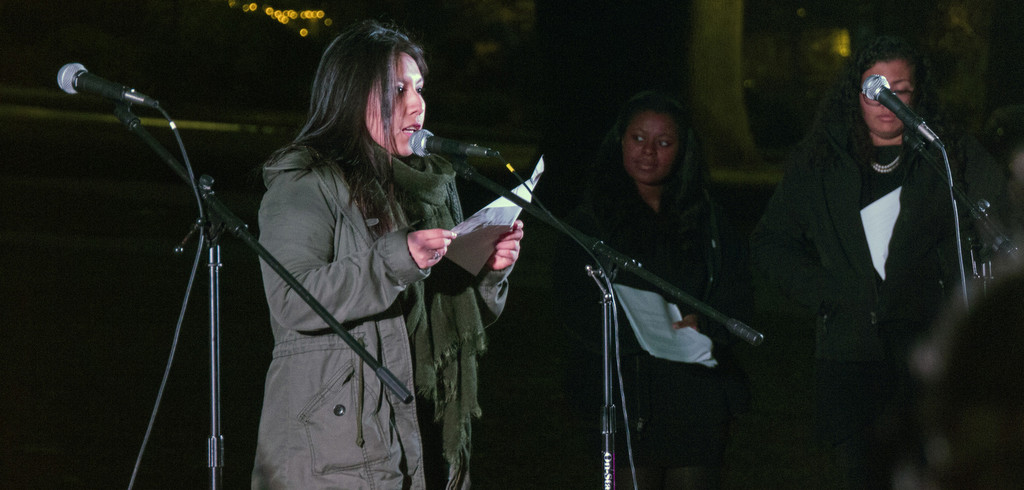
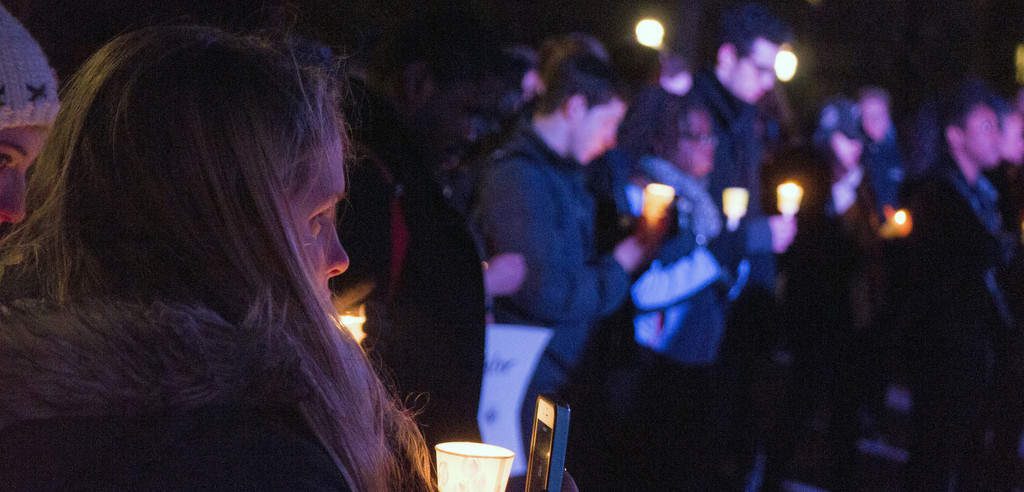


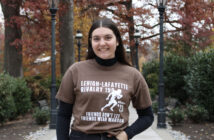

Comment policy
Comments posted to The Brown and White website are reviewed by a moderator before being approved. Incendiary speech or harassing language, including comments targeted at individuals, may be deemed unacceptable and not published. Spam and other soliciting will also be declined.
The Brown and White also reserves the right to not publish entirely anonymous comments.